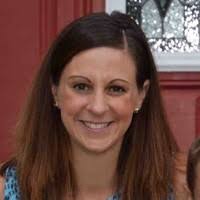
Clinical Analyst, Jackson Laboratory for Genomic Medicine
Cara Statz, Ph.D. earned her Ph.D. in Genetics and Genomics at the University of Connecticut in Storrs, CT. Dr. Statz has been an adjunct faculty at Gateway Community College and the University of Connecticut. Prior to joining The Jackson Laboratory, she worked as a Clinical Research Associate at Hartford Hospital. Her top skills include clinical research, immunology and molecular biology.

Vice President, Molecular Sciences, Abcam
Having founded more than 4 biotech companies, Dr. Weiner is a serial scientist-entrepreneur. He has invented and/or helped to develop commonly used molecular biology tools and technologies, including the first to sequence M.BamHI, the QuikChange Mutagenesis kit, DNA bar-coding of Luminex beads, Emulsion PCR, Digital PCR, microfluidic droplet labeling, and the first commercial Next Generation DNA sequencing instrument. His more recent work has focused on proteomics, antibody discovery, and antibody engineering.
Dr. Weiner, was selected as the recipient of CiteAb’s 2019 Lifetime achievement award and the Entrepreneur of the Year (2016) for Connecticut by CURE (CURE is Connecticut's Bioscience Innovation Network).
Moreover, Dr. Weiner has contributed time, energy, and resources to training and mentoring numerous bioscience and biobusiness professionals who are currently enriching the Connecticut bioscience cluster.